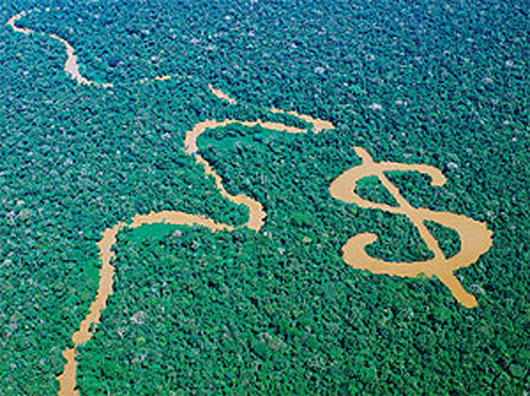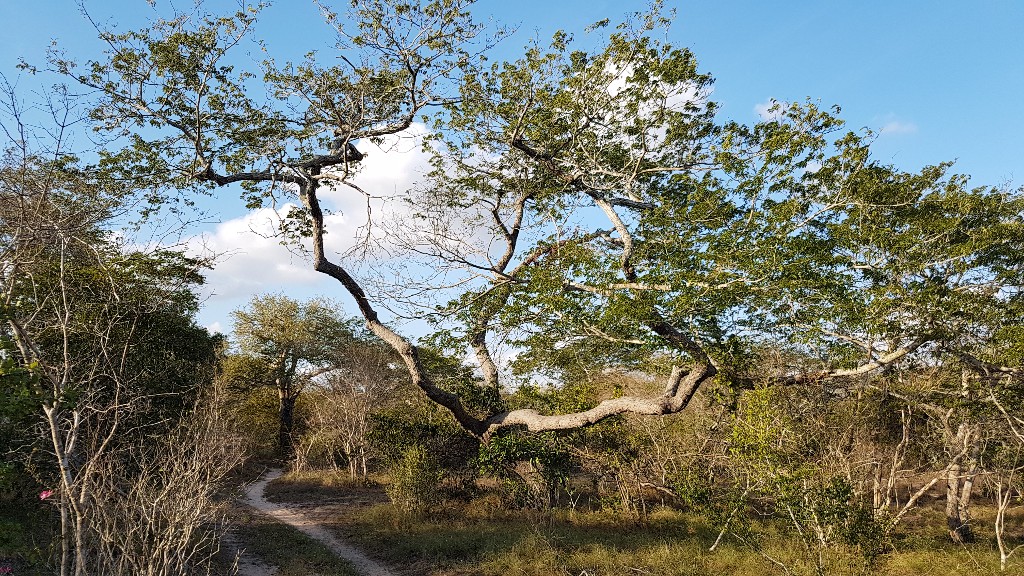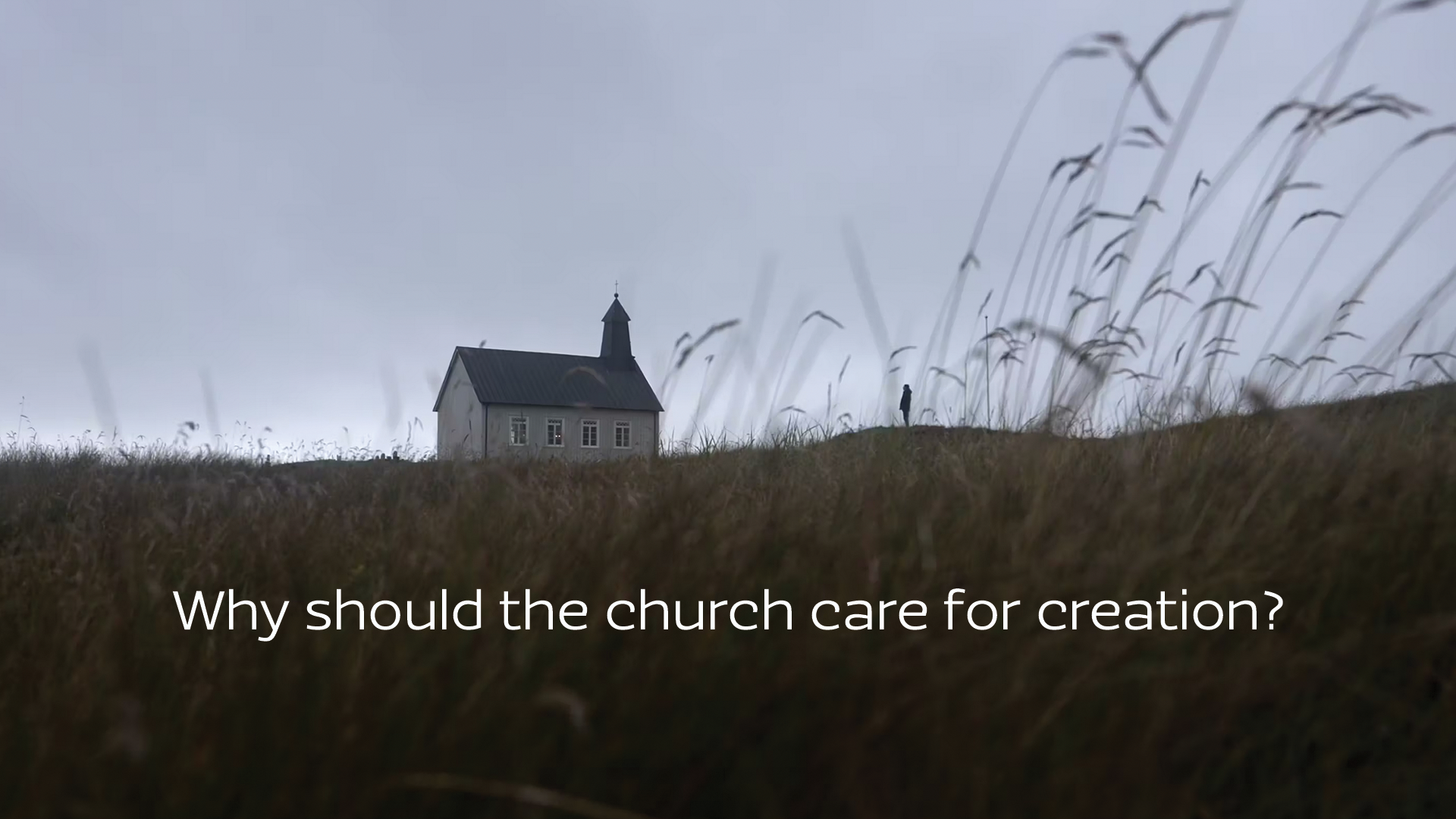Is ecology a luxury in a time of crisis?
A friend was recently on holiday in France and found a local Catholic newspaper with the headline, ‘Is ecology a luxury in this time of crisis?’ At first sight the answer seems obvious. Surely basic human needs for food, warmth and security must precede choices over organic vegetables and solar panels?
 However, as I reflected, I realised the question itself may reveal a disconcertingly distorted worldview … one not limited to French Catholics but common throughout the ‘developed’ world. At its heart is the assumption that ‘the environment’ is something separate from us as human persons, something we have a choice about whether or not we get involved in. It is, many philosophers believe, this separation that has allowed the success of our species. By seeing minerals, plants, atmospheric gases, soils, oceans and fellow animals simply as ‘resources’ for us to exploit for our own ends we have enabled ourselves to control ‘our’ environment.
However, as I reflected, I realised the question itself may reveal a disconcertingly distorted worldview … one not limited to French Catholics but common throughout the ‘developed’ world. At its heart is the assumption that ‘the environment’ is something separate from us as human persons, something we have a choice about whether or not we get involved in. It is, many philosophers believe, this separation that has allowed the success of our species. By seeing minerals, plants, atmospheric gases, soils, oceans and fellow animals simply as ‘resources’ for us to exploit for our own ends we have enabled ourselves to control ‘our’ environment.
Yet what we’ve been doing is a bit like building an enormous tree-house by using branches and roots cut from the tree we’re sitting in. Sooner or later we’ll go too far and it will all come crashing down. Ecology is not a luxury. It is the science of relationships that connect every human being and every part of the biosphere we inhabit and depend upon.
If we take a step back and analyse the causes of our current global ‘time of crisis’, they are not temporary glitches in a successful economic machine, but systemic failures to recognise the limits within which we need to live. An economic system which sees the environment as an externality, refuses to acknowledge the finitude of resources, and sees growth as the Holy Grail, is a terminally sick system. Our failure to think ecologically is actually the largest cause of our current crisis, and its solution can only be found as we learn again to ‘look at the birds’ and ‘look at the flowers’ to find our dependence and connectedness.
Ironically, it is the comfortable, not the poor, who are most insulated from this reality. Living in artificial air-conditioned, centrally-heated bubbles, we easily motor from one place to another without connecting and eat food without relating to the places and people that produce it. We may be ‘developed’ in an economic and industrial sense, but at what cost? The world’s poor can teach us about ecology. They know their dependence on rain, sun, good soil, and stable climate, and therefore they often, though not always, show more respect for the land, creatures, and communities that nurture them.
Coming full circle (a good ecological concept) as I reflect again, I can see the point the French newspaper was making. ‘Ecology’, as a rich person’s hobby, is not going to save the planet. Overpriced eco-bling and chic designer green lifestyles are not what we need. They are simply cosmetic surgery on a dying body. We need an ecological renaissance. For me, that begins with learning to live within the truth that, ‘The earth is the Lord’s, and everything in it’.
We are happy for our blogs to be used by third parties on condition that the author is cited and A Rocha International, arocha.org, is credited as the original source. We would be grateful if you could let us know if you have used our material, by emailing [email protected].




“The world’s poor can teach us about ecology”…so interesting phrase…and remind my time living for a month with Coyas at the north of Argentina where they teach me the best genotipic biodiversity lectures every day at lunch where we cook and eat an amazingly many kind of potatoes never know for an urban people. But I lef one question is placed on my mind always I think in this people called “as poor” living which such a great diversity living and caring it every day…who is the really poor?…thanks.
This got me thinking, Dave, because the immediate necessities of food, water and shelter are obvious priorities. At the same time providing these without having thought to how they will be provided in the future is of little value.
As you note, “ecology” or “environmentalism” is often seen, at least in popular culture, as merely saving plants and animals, rather than maintaining a healthy environment for all inhabitants of our planet. For Christians environmental concern should additionally manifest a reverence for God’s creation and obedience to God’s command to care for the earth and reflect a vision of God’s coming Kingdom. This should be the basis of the “ecological renaissance” to which you refer.
In many cases, including in the UK, governments seem to have, since the beginning of the financial crisis, taken the view that economic growth is more important than and (questionably) contrary to environmental protection. Economic growth is largely driven by a demand for real luxury items: the latest technology, conveniences, fashion and pleasures. It would be better to consider making sacrifices that only affect our own comfort before we give up on saving the world!
It is also worth noting that much poverty is related to an unfair distribution of wealth rather than lack of economic growth.
Your last paragraph is also good. As made clear in 1 Corinthians, 13, anything we do that is not grounded in love for Christ and our neighbours is pointless. Ecological concern, like anything else, can become a goal in itself, at which point we need to refocus our love to Christ.
Thank you.
very well written.
I would also like to add that through our separation we have forgotten the ‘services’ nature delivers us. Everyone knows we get oxygen from trees and plants. Also most of our food crops depend on polination from insects. Dunes and mangroves protect our coast and there are many examples more.
We are part of ecology on a daily basis.
[…] More here: Is ecology a luxury in a time of crisis? | The Planetwise Blog […]
All very well, but there is a dialogue of the deaf between economists and ecologists: economists behave as if (as you rightly say) concern for the environment is a free option, whilst ecologists behave as if the economic pursuit of growth and/or ‘development’ is a free option. Neither is true. Growth is a function of population. As human populations grow economic development is essential. If your population is growing at ten per cent and your economy is growing at two, you are in fact becoming poorer as a nation. The American continent was, in the age of the industrial revolution, the great absorber of excess European populations: previous to that, world-wide, successive generations of young men were wiped out in the many wars of the sword and spear which plagued our planet, or whole populations were decimated by uncontrollable plagues, allowing space for those that followed. The current so-called Middle Eastern spring is a function of the existence of too many young men with not enough work. It is the energy of youth which drives human expansion. Our present woes are largely a function of the fact that we have reached the limit of that process: there are no more Americas, and nowhere for excess population to go to. We are pushing at the envelope constantly, and constantly falling back. The human beast has never been good at stability, at maintaining a stable-state society. We are about to find out how to do it: or destroy ourselves and the planet in the process. The key is to stabilize populations: our fecundity is our fate: our joy and our ruin.
I have written about how to live practically on a budget for a Christians Against Poverty blog post here: https://capuk.org/connect/blog/ethical-living-on-a-budget
Thanks everyone – some great comments! As thedonnachaidh rightly says, the relationship between population growth, economic growth, and planetary limits is critical here … maybe I’ll try and blog on that soon too!
I worry more about the growth of each person’s consumption, than about the growth in the number of people. Live simply so others may simply live. The key (for me) is to stabilize individual consumption below greed levels. Population is to me a secondary concern, and I fear it can be a straw man argument that turns our focus from all the things we ‘must’ own, towards the Pakistani and his ten children. It can also dull our conscience towards all of the ills the poor have to face, like famine, disease and war; after all, there’s so many of them, and if not for those disasters how would our planet cope?
(Vested interest disclaimer: I have four children.)
Looking forward to that! 🙂